Common Mullein
- Figwort or Snapdragon (Scrophulariaceae family):
- Verbascum thapsus L.
- EPPO code:
- VESTH
- Other names:
- Candlestick, devil’s tobacco
Species information
- Lifecycle:
- Biennial.
- Propagation:
- Reproduces by seed.
- Emergence:
- Common mullein seed germinates in early spring and grows as a rosette throughout the season. The rosette overwinters and then flowers, producing seed in its second year of growth.
- Habitat:
- Common mullein is found throughout Ontario, predominately in waste areas and pastures, and along roadsides. It is found less frequently in northwestern Ontario, perhaps due to the acidity of the soil there. The plant prefers a soil pH range of 6.5 to 7.8 (Gross and Werner, 1977).
- Competitiveness:
- Common mullein is not considered competitive nor a weed of agricultural concern since it does not thrive in cultivated landscapes. If common mullein is found in pastures it is usually a symptom of overgrazing.
Identification clues
Seedling
- Cotyledons:
- Round to orbicular with long stalk, hairy margins and surface.
- Young leaves:
- Common mullein’s first leaves form a basal rosette and are oblong in shape. The leaves are densely woolly and feel fuzzy when to the touch.
- Mature leaves:
- Its stem leaves are alternate, elongated to oblong and densely woolly.
Mature plant
- Stems:
- In the second year the plant bolts with an elongated stem that ranges from 1–2 m in height.
- Flowers:
- Common mullein’s flowers grow in an elongated spike (20–50 cm long) with numerous yellow, five-petal flowers. Sometimes the plant has numerous branched spikes on top.
- Seeds:
- They are contained in brown capsules in a dense seed-head. Its seeds are extremely small, reddish-brown and deeply grooved, resembling tiny corn cobs.
- Roots:
- Taproot with shallow secondary fibrous roots.
Often mistaken for
We can’t think of many species that would be confused with common mullein. Its distinct, densely woolly leaves and long spike made up of numerous yellow five-petal flowers make it a unique species.
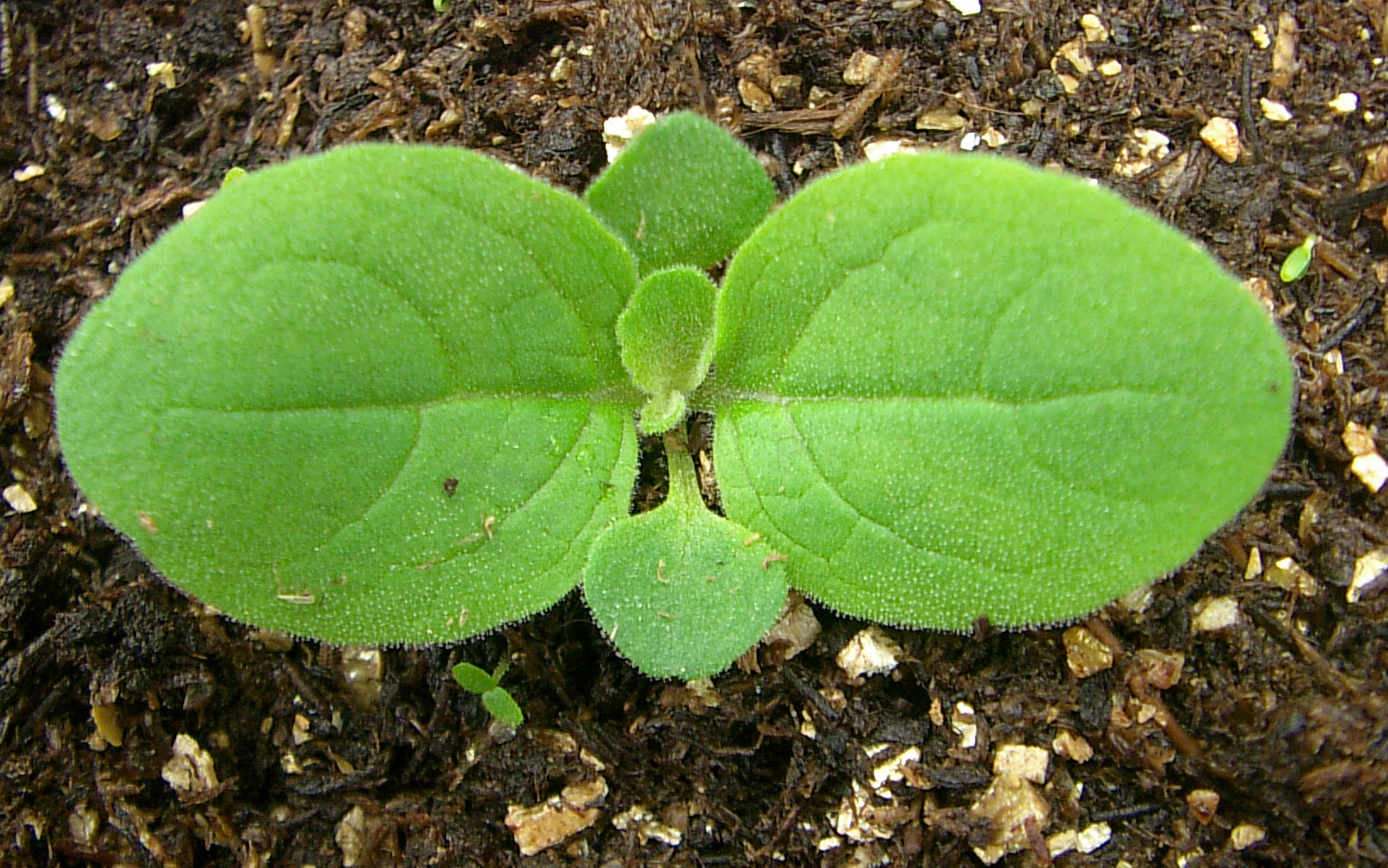
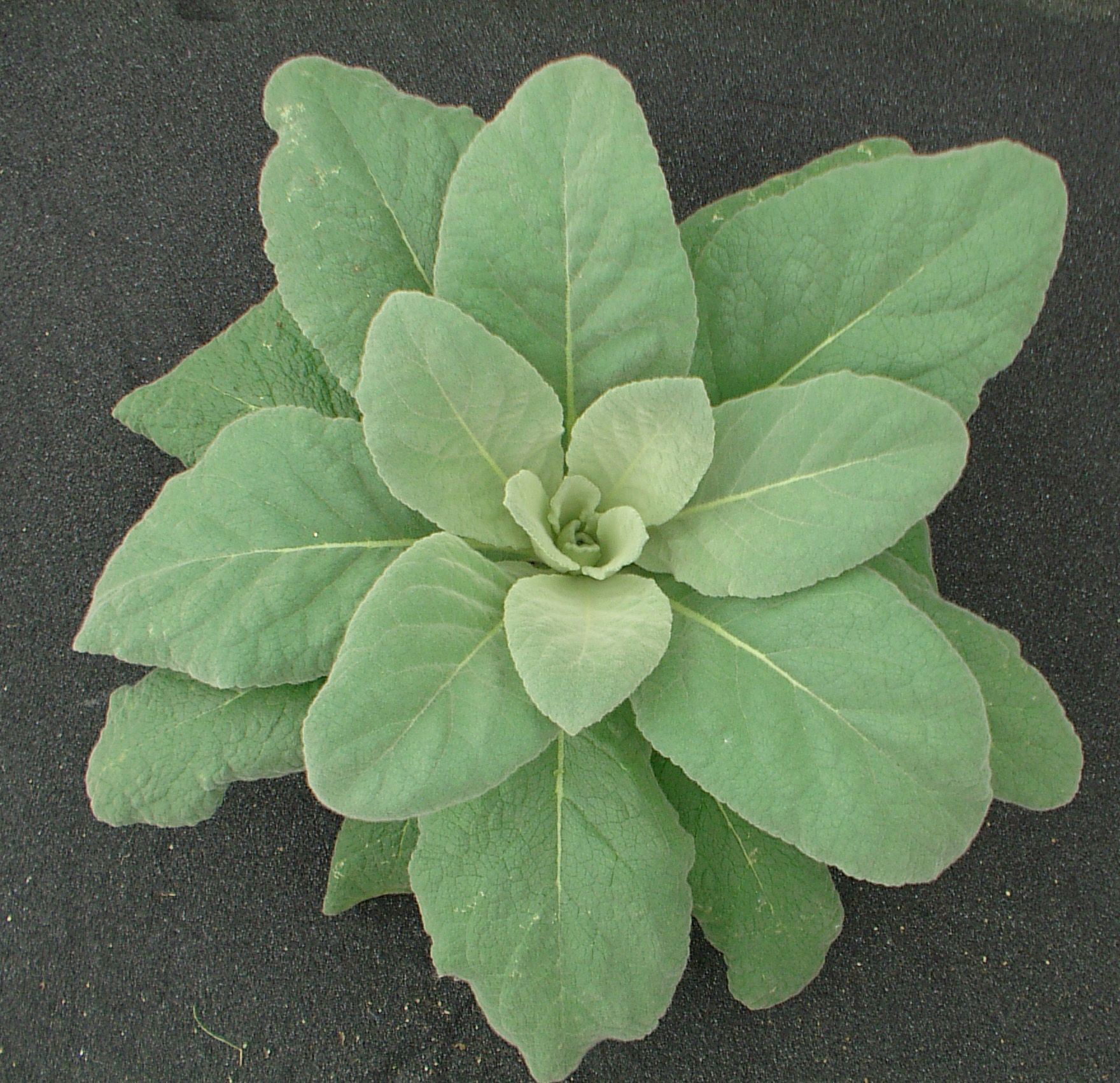
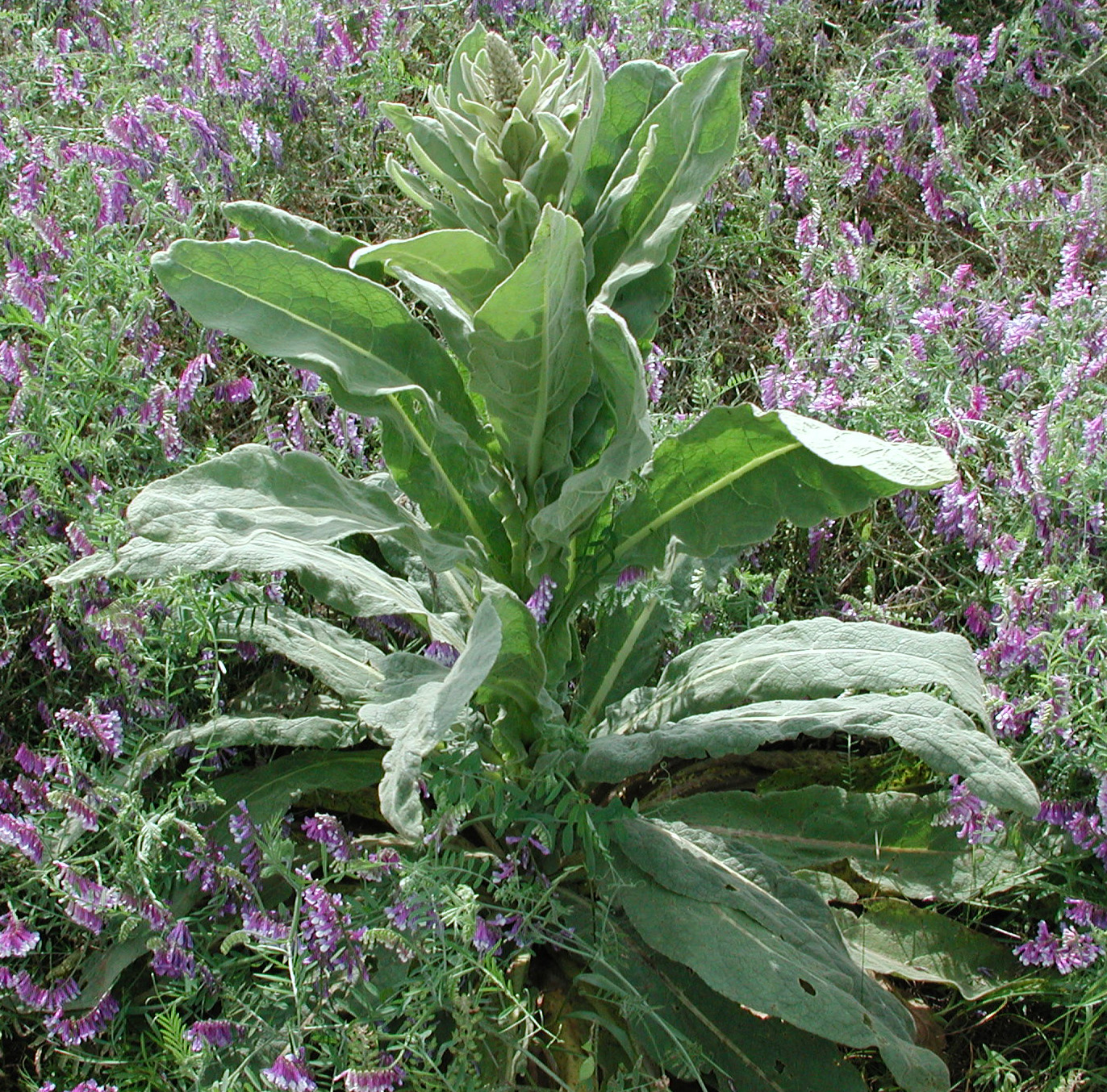
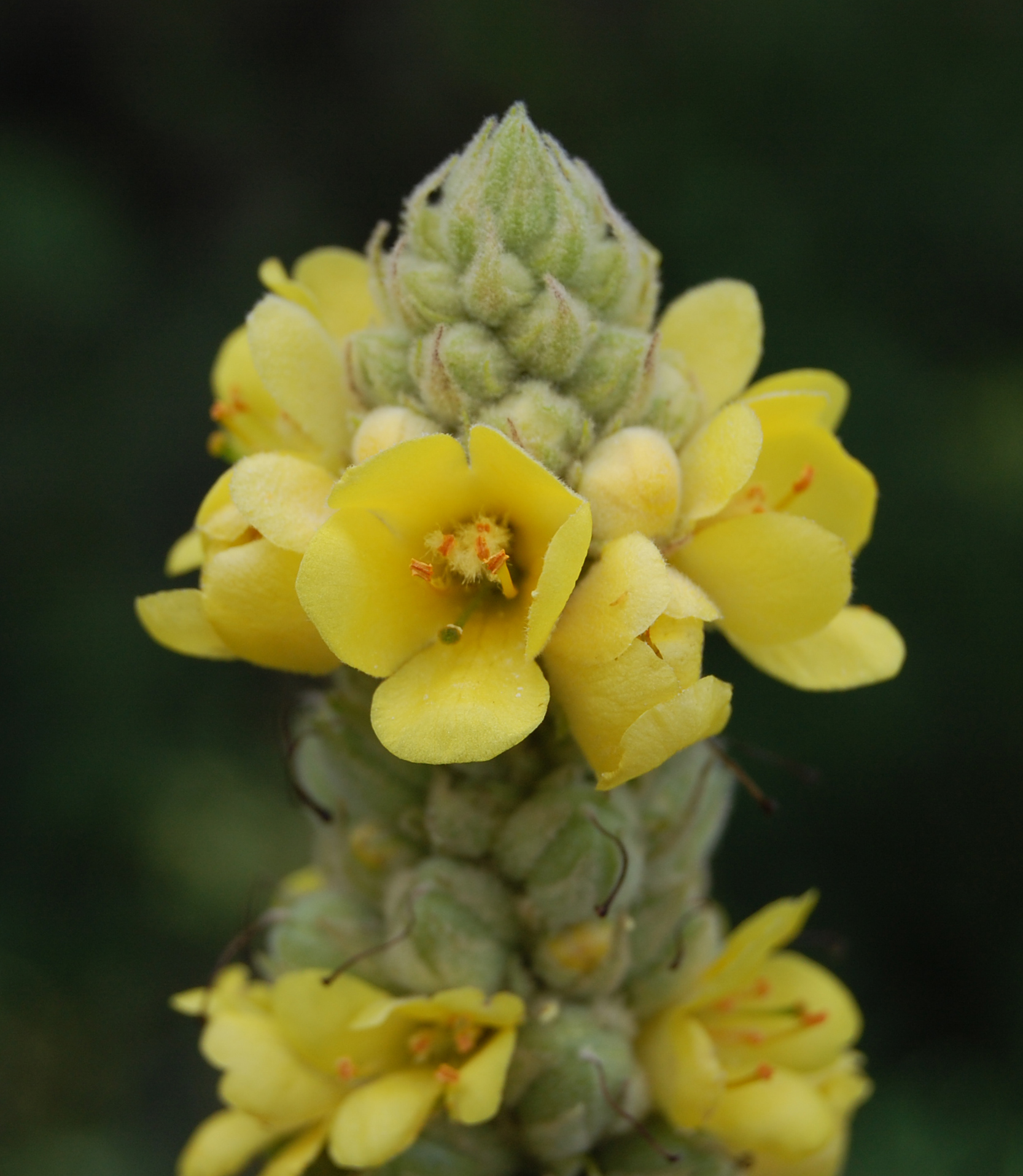
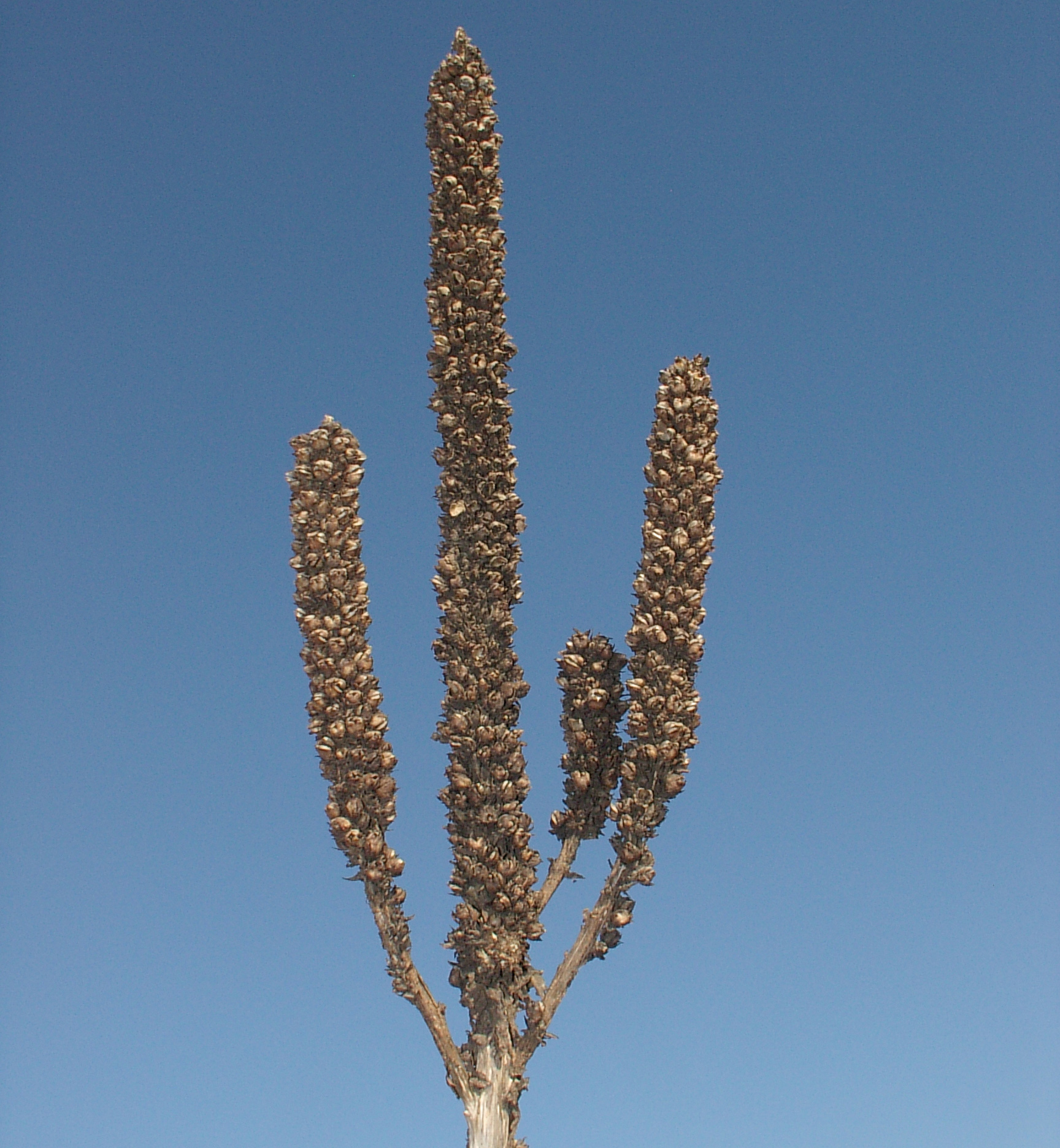
Updated: January 13, 2023
Published: January 13, 2023